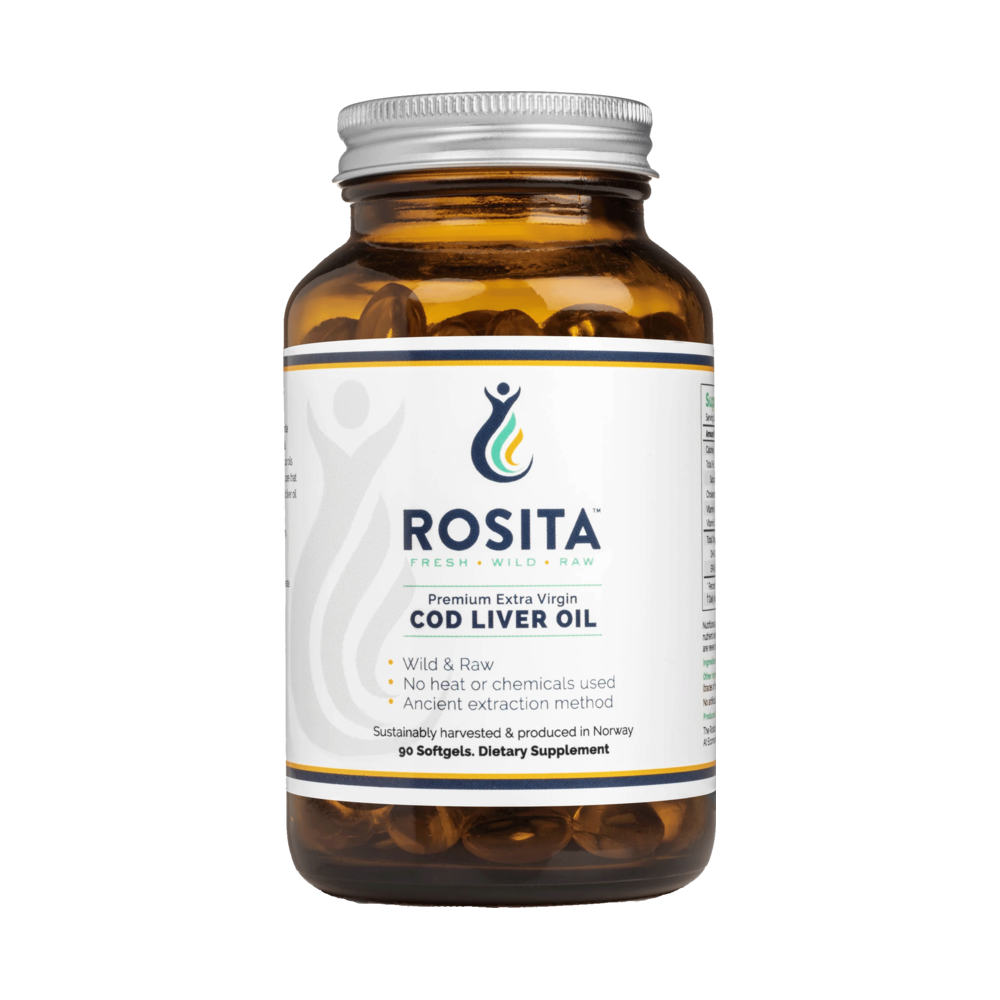Taking Vitamin B with Other Vitamins
When it comes to taking vitamins, certain vitamins work best when paired together, while others may compete or cancel each other out. Vitamin B is no exception, as it’s part of a broader nutrient puzzle that can impact how your body absorbs and utilises it. So, let’s explore how Vitamin B interacts with other vitamins and what that means for your health.
The B Vitamin Family
Vitamin B isn't just one vitamin—it's a whole family, including B1 (thiamine), B2 (riboflavin), B3 (niacin), B6 (pyridoxine), B9 (folate), and B12 (cobalamin), among others. These vitamins have many benefits and play crucial roles in energy production, brain function, and red blood cell formation.
Incorporating Vitamin B alongside other supplements into your routine may pave the way for better energy levels, cognitive function, and overall vitality, making it easier to tackle daily challenges. Read more about the benefits of Vitamin B.
The beauty of the B vitamins is that they often work in harmony. For example, folate (B9) and B12 are closely linked in supporting DNA synthesis and maintaining healthy nerve function. Without enough B12, folate can’t do its job effectively. That’s why many B-complex supplements bundle all the B vitamins together.
Vitamin Synergy: Friends of Vitamin B
While the B vitamins are their own team, they also play well with others. Here are a few key pairings to consider:
- Vitamin C and B Vitamins: Vitamin C can help enhance the absorption of certain B vitamins, especially folate. Plus, both are water-soluble, meaning your body doesn’t store them, so they work as a dynamic duo for daily replenishment.
-
Vitamin D and B12: There’s evidence suggesting that these two vitamins may team up to support cognitive health and nerve function, making them an important combination for long-term wellness.
Avoiding Interference: When to Space Things Out
Not all vitamins are team players. For instance:
- Calcium and B Vitamins: High doses of calcium might interfere with B12 absorption, so consider spacing out these supplements or meals. Some experts suggest spacing out calcium from certain B vitamins, like B12, by at least two hours to avoid potential absorption interference. If you’re taking multiple supplements, it’s always a good idea to check labels and stagger them throughout the day for maximum benefit.
- Iron and B Vitamins: Some studies suggest that large amounts of iron can inhibit the absorption of certain B vitamins. If you’re taking an iron supplement, leave a little time between it and your B-complex.
Here's a helpful table outlining common vitamin combinations with Vitamin B including potential benefits and side effects.
| Vitamins | Combines with Vitamin B | Potential Benefits | Potential Side Effects |
| Vitamin C | ✅ Yes | Enhanced energy levels Improved immune function |
Rarely causes stomach upset in high doses |
| Vitamin D | ✅ Yes | Cognitive support Better nerve function |
Excessive doses may cause toxicity |
| Magnesium | ✅ Yes | Reduced stress Improved sleep |
Can cause digestive issues in high doses |
| Omega-3 Fatty Acids | ✅ Yes | Enhanced brain health Heart protection |
Generally safe; high doses may thin blood |
| Calcium | ❌ No | Bone health Supports muscle function |
May interfere with Vitamin B12 absorption |
| Iron | ❌ No | Improved oxygen transport Combats anemia |
Large amounts might block certain B vitamins |
Can You Take Vitamin B and D Together?
Vitamin B, particularly B12, is essential for energy metabolism and nervous system health. Vitamin D, on the other hand, helps your body absorb calcium, supports bone strength, and plays a role in immune function. While they don’t directly interact in the body, they work in separate yet vital systems that often overlap in promoting overall health.
For example, Vitamin B12 is linked to cognitive function, and research suggests that adequate Vitamin D levels may also enhance brain health. Together, they can support mental clarity and vitality, making them a powerful pairing for both body and mind.
Benefits of Taking Vitamin B and D Together
- Improved Energy Levels: Vitamin B supports the conversion of food into energy, and Vitamin D contributes to muscle health, keeping you active throughout the day.
- Cognitive Support: Vitamin B12 and Vitamin D are both associated with better mental function, which can help with focus and mood regulation.
-
Immune Health: While Vitamin D directly boosts immunity, Vitamin B indirectly aids by supporting cellular health, ensuring your body operates efficiently.
|
VitamoreD |
Can I Take Vitamin B Complex with Magnesium?
Vitamin B complex contains a group of eight water-soluble vitamins, including B1, B2, B3, B6, B9, and B12, all of which play key roles in energy production, brain function, and the health of your nervous system. Magnesium, on the other hand, is a mineral that supports over 300 biochemical reactions in the body, such as muscle relaxation, stress reduction, and sleep quality. When taken together, these two nutrients can amplify each other's benefits:
-
Vitamin B complex provides the energy your body needs to function optimally, while magnesium helps regulate stress and calms your nervous system, creating a balanced foundation for physical and mental health.
-
Magnesium assists in the activation of Vitamin B6, enhancing its ability to convert amino acids into neurotransmitters like serotonin and dopamine, which are crucial for mood stabilization.
Benefits of This Combination
- Energy Boost: The B vitamins in the complex aid in energy metabolism, while magnesium supports muscle function, making this duo ideal for staying active and focused.
- Stress Relief: Magnesium's calming effects, combined with B vitamins' support for the nervous system, help reduce stress and improve your resilience to daily challenges.
- Better Sleep: Magnesium promotes relaxation, and Vitamin B6 assists in the production of melatonin, the sleep-regulating hormone.
- Heart Health: This combination may contribute to maintaining healthy blood pressure and cardiovascular function.
|
Vital Nutrients Magnesium (Glycinate/Malate) |
Can I Take Vitamin B Complex with Vitamin C?
Vitamin C and B vitamins make an excellent pair for supporting overall health and energy. Both are water-soluble, meaning they’re not stored in your body and require daily replenishment through food or supplements. When combined:
- Energy Boost: B vitamins help convert food into energy, while Vitamin C aids in reducing oxidative stress, ensuring optimal energy metabolism.
- Immune Support: Vitamin C fortifies your immune system, and B vitamins support the production of white blood cells, creating a strong defense against illness.
- Enhanced Absorption: Vitamin C can improve the absorption of certain B vitamins, such as folate, making this pairing even more effective.
|
Seeking Health Liposomal Vitamin C |
Can I combine Omega-3 Fatty Acids with Vitamin B?
Pairing Omega-3 fatty acids with B vitamins creates a winning combination for brain and heart health. Omega-3s, known for their anti-inflammatory properties, complement the cognitive and energy-boosting benefits of B vitamins like B12 and folate. Key benefits include:
- Cognitive Health: Together, they support brain function, helping to enhance memory and focus while protecting against age-related cognitive decline.
- Heart Wellness: Omega-3s promote cardiovascular health, and B vitamins help regulate homocysteine levels, a marker linked to heart disease risk.
- Mood Support: This duo aids neurotransmitter production, which can improve mood and reduce feelings of stress.
|
Rosita Extra Virgin Cod Liver Oil |
Dos and Don’ts for Optimal Absorption
- Take with Food: B vitamins are best absorbed when taken with food, particularly meals containing a bit of healthy fat.
- Stick to Recommended Doses: More isn’t always better when it comes to vitamins. Excessive doses can sometimes lead to imbalances or unwanted side effects.
Conclusion: The Power of Balance
When it comes to taking Vitamin B with other vitamins, balance is everything. Understanding how these nutrients interact can help you make informed choices about your diet and supplements. When in doubt, consult a healthcare professional to tailor your vitamin regimen to your specific needs.









